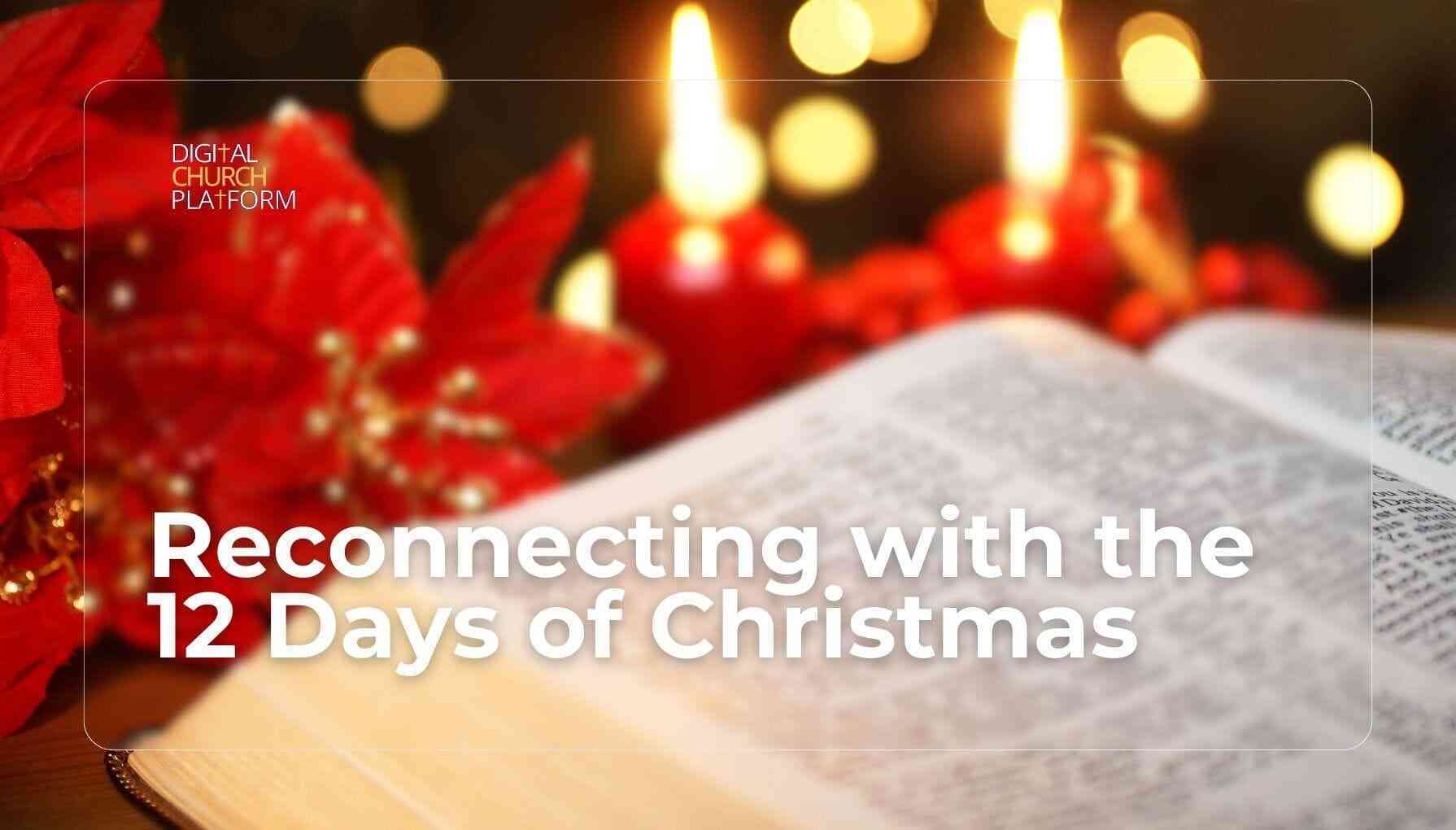
December 25 has come and gone. Carols have been sung, presents unwrapped, Christmas dinner savoured, and leftovers packed away for later. Friends and family who came for Christmas may have headed home, and it won’t be long before the decorations are taken down until next year.
For many of us, our sights are set on the new year and returning to business as usual, but Christmas Day certainly doesn’t mark the end of Christmas - in fact, it’s only the beginning.

Most of us are at least slightly familiar with the popular Christmas carol ‘The 12 Days of Christmas’. The twelve verses of this festive earworm, each added to by another gift and ending with the final refrain ‘and a partridge in a pear tree’, is a frequent choice at festive events across the country. And while not all of us will know the lyrics in their entirety, it’s a song we hear so often that we try our best to sing along.
The history of this Christmas song is unclear. Some believe it originated in France, while others believe its origins lie in the Catholic church. But most historians agree that it was designed as a recall game, popularly played in 1800s England, where singers tested their memory by seeing if they could repeat all of the previously sung lyrics and adding the next verse until the song was complete and the game could begin again.
On the twelfth day of Christmas
My true love gave to me
Twelve drummers drumming,
Eleven pipers piping,
Ten lords a-leaping,
Nine ladies dancing,
Eight maids a-milking,
Seven swans a-swimming,
Six geese a-laying,
Five golden rings,
Four calling birds,
Three French hens,
Two turtle doves
And a partridge in a pear tree.
The earliest known printed version appeared in a 1780s children’s book entitled Mirth With-out Mischief (and sold at auction in 2014 for $23,750), but the lyrics have gone through many revisions and the version we sing today would undoubtedly be unrecognisable to those early singers. The modern version we sing today is attributed to English composer Frederic Austin who set it to its current melody in 1909.
But what are the Twelve Days of Christmas?
The twelve days to which this Christmas song refers are less frivolous than the lyrics suggest. The Twelve Days is the period in the Christian calendar that marks the time between the birth of Jesus Christ in Bethlehem and the coming of the Magi, who brought Him the gifts of gold, frankincense and myrrh.
Starting on Christmas Day (December 25) and ending on the Epiphany (January 6), the Twelve Days are observed as a celebration of Jesus’ birth, while Advent, the weeks preceding Christmas, is a period of expectancy. And so, the celebration of Jesus’ birth doesn’t end when the clock strikes midnight on Boxing Day; rather, it is just beginning.

The Twelve Days of Christmas is not a forgotten tradition, but it is not as popularly observed as it once was. Read on if you are looking for ways to reconnect with this tradition.
Reconnecting with a celebratory tradition
In his book Worship is a Verb: God’s Mighty Deeds of Salvation, Author Robert E. Webber writes that “Christmas is a season of joy, festivity, and fun. It’s a 12-day festival from December twenty-fifth to January sixth, the day of Epiphany. Our spiritual experience during this time should be similar to that of enjoying a visit from someone special.
“It is a time of celebration, of singing Christmas carols, of giving and receiving gifts, of enjoying fellowship with friends and loved ones…during this time, we are truly alive and free in the presence of our Guest. And the good news of Jesus Christ deserves a shout, a party, a frolic!”
Observing this period should be a joyful affair. Some mark it by exchanging gifts with their loved ones on each of the twelve days (although it’s unlikely that French hens or gold rings will appear amongst these gifts nowadays) or by sharing traditional meals.
It should also be a reflective time. Take some time to really consider the magnitude of God’s gift to us at Christmas. A modern tradition you might try is lighting a candle to burn on each of the twelve nights leading to the Epiphany as a visual reminder or donating your time or money to help those in need.
However you choose to observe the Twelve Days of Christmas, we hope that reconnecting with this season brings you peace and joy, especially in these uncertain times.
----
As we prepare to enter a new year, have you considered your church's digital needs? The Digital Church Platform® provides an extensive suite of digital tools to meet your church’s unique church software requirements and digital needs. Our Church CMS, Role Compliance, Repository and Visitation modules are easy to implement and simple to use. To learn more or get started, contact us here.



